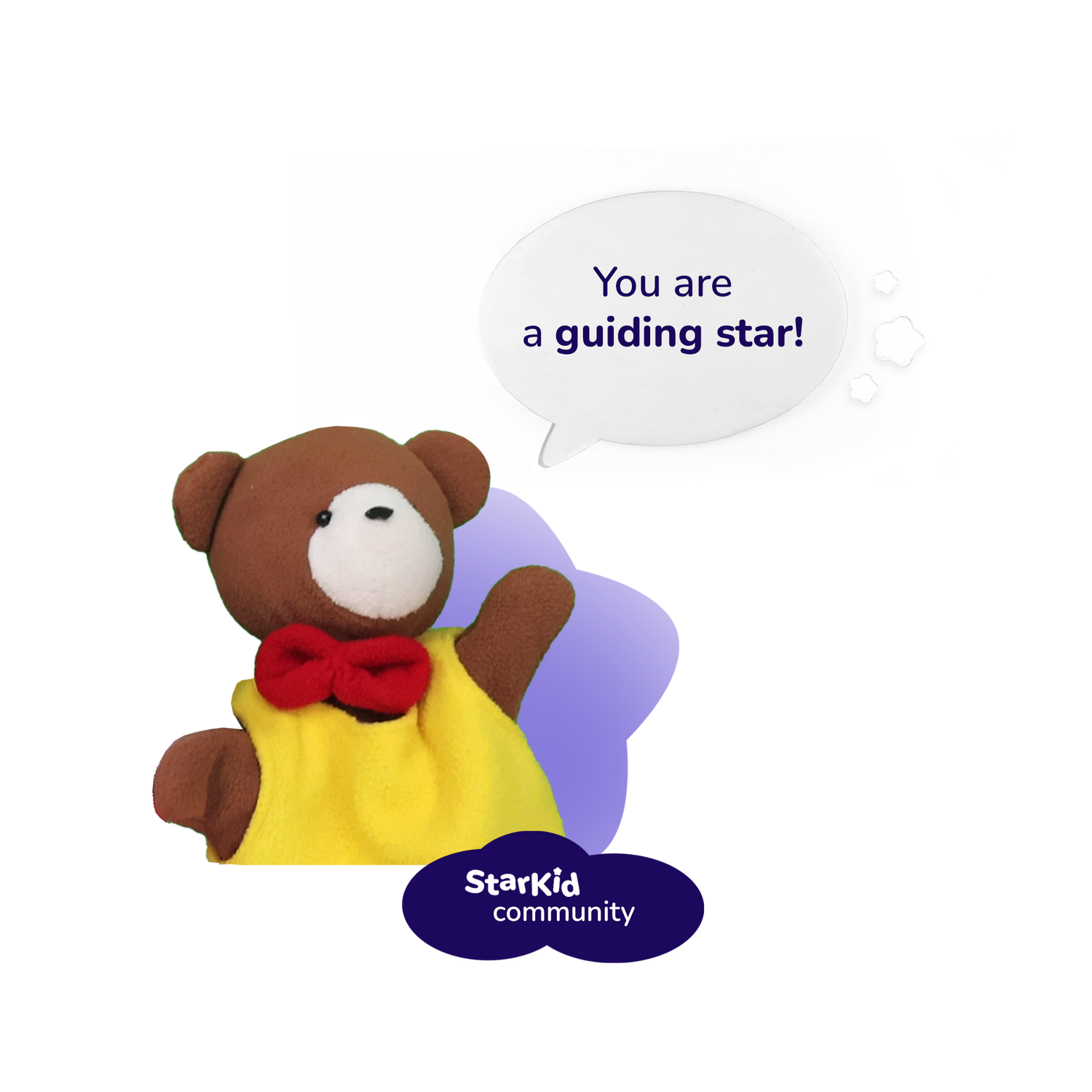🕒 Reading Time: 11–13 minutes
Table of Contents
Looking Back: Is It All Negative?
Expert Perspective: Dr. Judy McClellan
Wholesome Story: Mia Hemstad's Experience
Be Mindful: A Self-Check Exercise
Introduction
Most children who have autistic siblings care deeply and share a strong bond with them. This journey introduces a range of experiences that remain emotionally transformative.
Neurotypical siblings who live with StarSiblings face unique developmental challenges that impact their emotional states — and their entire family system.
When Maturity Comes Too Early
Multiple research papers use the expression “robbed childhood” to describe situations where neurotypical children take on responsibilities far beyond their age. These children often perform older-age tasks to support both their neurodivergent siblings and aging parents.
This need typically arises because parents cannot afford professional caregiving support (Tsao et al., 2012).
Young caregivers confront emotional pressure that leads to long-term stress and emotional exhaustion. Children may express this through externalizing behaviors such as anger or physical outbursts. Others may withdraw into their rooms to escape the overwhelming environment.
Parents should approach these behaviors with understanding and patience. Waiting for children to regain self-control yields better outcomes than confronting them immediately during moments of distress.
Neurotypical siblings also act as protectors. Children with autism spectrum disorder (ASD) often face increased bullying and social isolation (Hebron & Humphrey, 2014). Their siblings frequently serve as a buffer, guarding them from external harm. This protective role deserves recognition—even when it comes with heavy emotional burdens.
Looking Back: Is It All Negative?
Adult siblings often have difficulty recounting their childhood experiences, as these memories are layered and complex.
According to Orsmond & Seltzer (2007), most recall a blend of positive and negative emotions.
Many remember distress related to high expectations placed upon them: excelling in school, helping around the house, and managing their emotions alone. They often hid feelings like anger, sadness, or jealousy to avoid adding emotional strain to their parents.
A common theme is feeling emotionally neglected. The demands of caring for a StarKid often left parents with little time or energy to notice birthdays, academic successes, or everyday acts of kindness. This lack of attention sometimes led to resentment or sadness.
Embarrassment also surfaced frequently. Siblings sometimes felt self-conscious when bringing friends home, fearing how others would respond to their sibling's behaviors. This internal conflict — between love and embarrassment — could lead to guilt and emotional confusion.
However, as they matured, many siblings’ understanding of autism deepened. Embarrassment often transformed into pride and advocacy.
Each family is different. Sibling experiences vary based on autism severity, birth order, behavioral issues, and cognitive differences (Hodapp & Urbano, 2007).
Siblings of children with more severe ASD traits may adopt caregiving roles more naturally, while those managing aggression may struggle emotionally.
Seeing the Positives
Despite difficulties, most adult siblings view their relationship as a source of emotional growth and deep affection.
Caregiving responsibilities help develop empathy, social insight, and emotional intelligence.
Research shows children with siblings who have developmental disabilities often demonstrate greater prosocial behavior—like helping and sharing—than peers without these experiences (Kaminsky & Dewey, 2001).
These individuals frequently pursue careers in health, education, therapy, and advocacy. As their parents age, many continue their caregiving role—either by living nearby or taking part in care planning.
This continued caregiving typically stems from love, not obligation.
According to multiple surveys, the emotion of love remains the deepest bond between adults and their StarSiblings.
Expert Perspective: Dr. Judy McClellan
Dr. Judy McClellan is a leading researcher on sibling dynamics in families with autistic members. Her work focuses on developmental disabilities and family systems.
In her presentations, she explains that neurotypical siblings must balance their protective instincts with personal independence.
Dr. McClellan advocates for parental validation and open dialogue in all family structures.
At the 2021 National Sibling Leadership Network Conference, she said:
"Siblings are not silent witnesses. To improve family well-being, parents must acknowledge and support the voices, experiences, and emotional needs of their children."
Her research shows that emotional success among siblings increases when families adopt honest, empathetic communication.
Learn more about her work through the Sibling Leadership Network: SiblingLeadership.org
Wholesome Story: Mia Hemstad's Experience
Mia Hemstad, a YouTuber and mental health advocate, shares an inspiring story about growing up with her autistic brother.
Mia explains how her brother has severe autism, struggles with communication, personal space, and attention. Still, she views caregiving as something that brought growth, not sacrifice.
She shares a beautiful memory of supporting him to achieve job independence. The day he received his first paycheck became a breakthrough—filled with pride and joy.
Mia recommends exploring government support programs for autistic individuals to gain independence, dignity, and autonomy.
Her story is a reminder that autistic individuals seek the same things as anyone else: to be capable, to be proud, and to belong.
Explore Mia's story on her YouTube channel: Mia Hemstad
What Can You Do as a Parent?
Supporting both your autistic and neurotypical children can be complex. These strategies help create a healthy, inclusive family dynamic:
- Acknowledge every achievement, no matter how small
- Give each child time for personal interests, friendships, and rest
- Invite regular one-on-one conversations with your neurotypical child—listen fully without offering immediate solutions
- Teach emotional coping tools like breathing, journaling, and mindful practices for managing anxiety
- Model positive communication and calm conflict resolution
- Provide developmentally appropriate education about autism so siblings can better understand and connect
And don’t forget to care for yourself. Parenting a StarKid demands resilience and creativity. Some days feel harder than others, but every small act matters.
Need help introducing mindfulness to your children? Try our Mindfulness Episodes for Kids and Parents — gentle, soothing audio guides for grounding emotions and deepening family connection.
Be Mindful: A Self-Check Exercise
Sit comfortably. Close your eyes if you like. Take three deep breaths, then ask yourself:
- “Am I acknowledging both of my children’s needs?”
- “Am I giving my neurotypical child space to express frustrations safely?”
- “How can I balance caregiving tasks more evenly?”
- “Have I recently celebrated my neurotypical child’s achievements?”
If you answer “yes,” take a moment to honor that effort.
If your answer is “no,” respond with kindness—not criticism—and gently consider a small adjustment.
Mindful parenting isn’t about perfection. It’s about presence, awareness, and love—one moment at a time.
Share Your Story
We invite you to share your journey.
Whether you’re a parent, a sibling, or an advocate, your story can inspire and support others walking a similar path.
References
Hebron, J., & Humphrey, N. (2014). Exposure to bullying among students with autism spectrum conditions: A multi-informant analysis of risk and protective factors. Autism, 18(6), 618-630. https://doi.org/10.1177/1362361313495965
Hodapp, R. M., & Urbano, R. C. (2007). Adult siblings of individuals with Down syndrome versus with autism: Findings from a large-scale US survey. Journal of Intellectual Disability Research, 51(12), 1018-1029. https://doi.org/10.1111/j.1365-2788.2007.00994.x
Kaminsky, L., & Dewey, D. (2001). Siblings relationships of children with autism. Journal of Autism and Developmental Disorders, 31(4), 399-410. https://doi.org/10.1023/A:1010664603039
Orsmond, G. I., & Seltzer, M. M. (2007). Sibling relationships and wellbeing in adolescence and adulthood. International Review of Research in Mental Retardation, 34, 231-271.
Tsao, L. L., Davenport, R., & Schmiege, C. (2012). Supporting siblings of children with autism spectrum disorders. Early Child Development and Care, 182(9), 1205-1220. https://doi.org/10.1080/03004430.2011.609617


